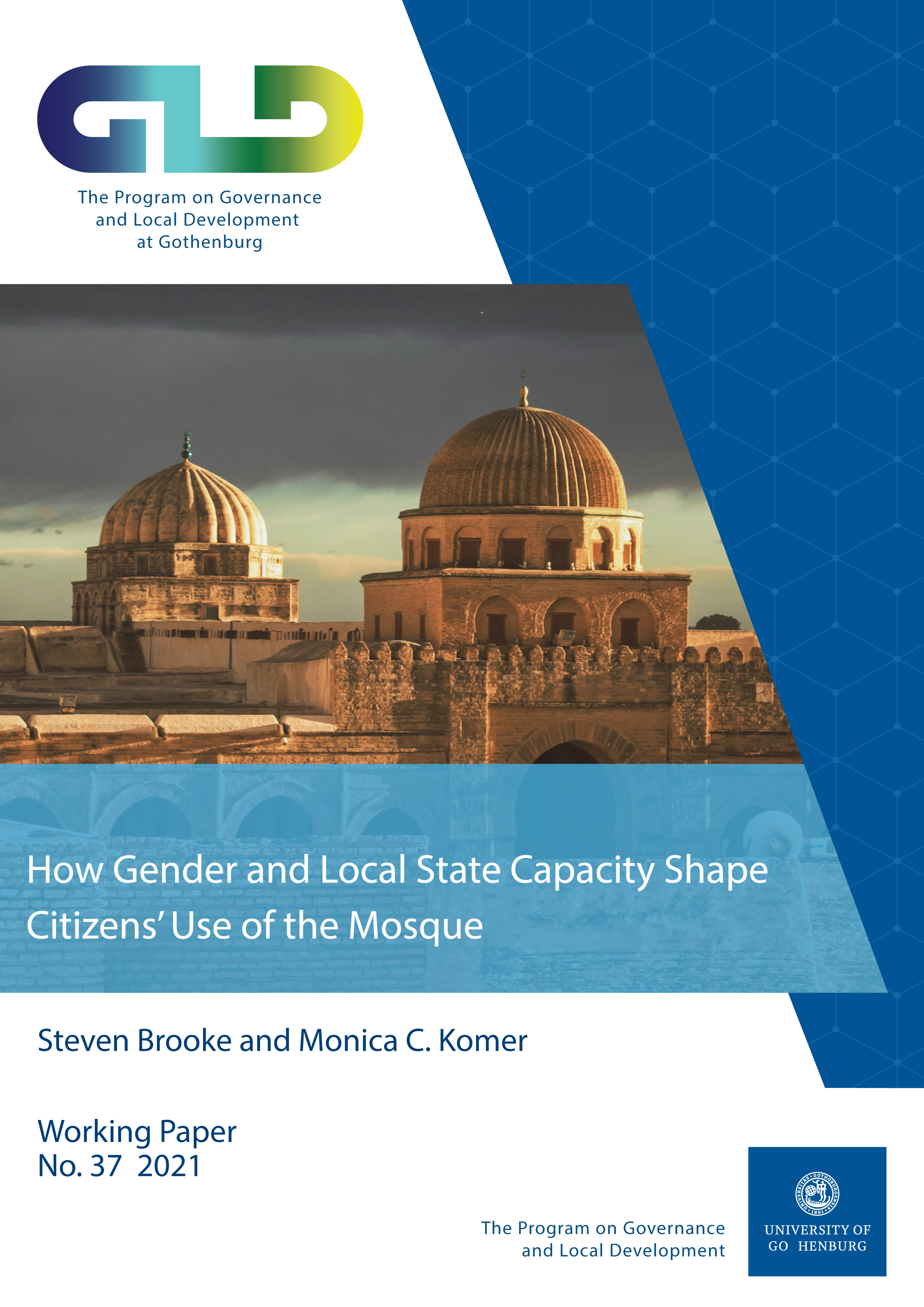No.37 How Gender and Local State Capacity Shape Citizens’ Use of the Mosque
Steven Brooke and Monica C. Komer
Abstract
There is a well-documented gender gap in mosque use in the Islamic World, with men attending Friday prayer more frequently than women. However, we know little about whether a gender gap exists among those that use the mosque for non-religious purposes. Using original survey data from Tunisia, we find that men are generally more likely than women to use mosques for non-religious reasons. However, in areas further from the coast—where communities face considerably more social and economic disparities—the gender gap dissipates. In areas above the 60th percentile in terms of distance from the coast, there is no gender gap in citizen preferences for mosque-based services. Our findings build upon existing work in two notable ways. First, our results suggest that individual and community level factors jointly shape preferences for mosque-based services. Second, they suggest that mosques may be particularly important places for women in marginalized areas to address personal and community problems.
